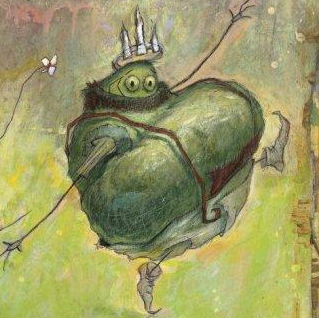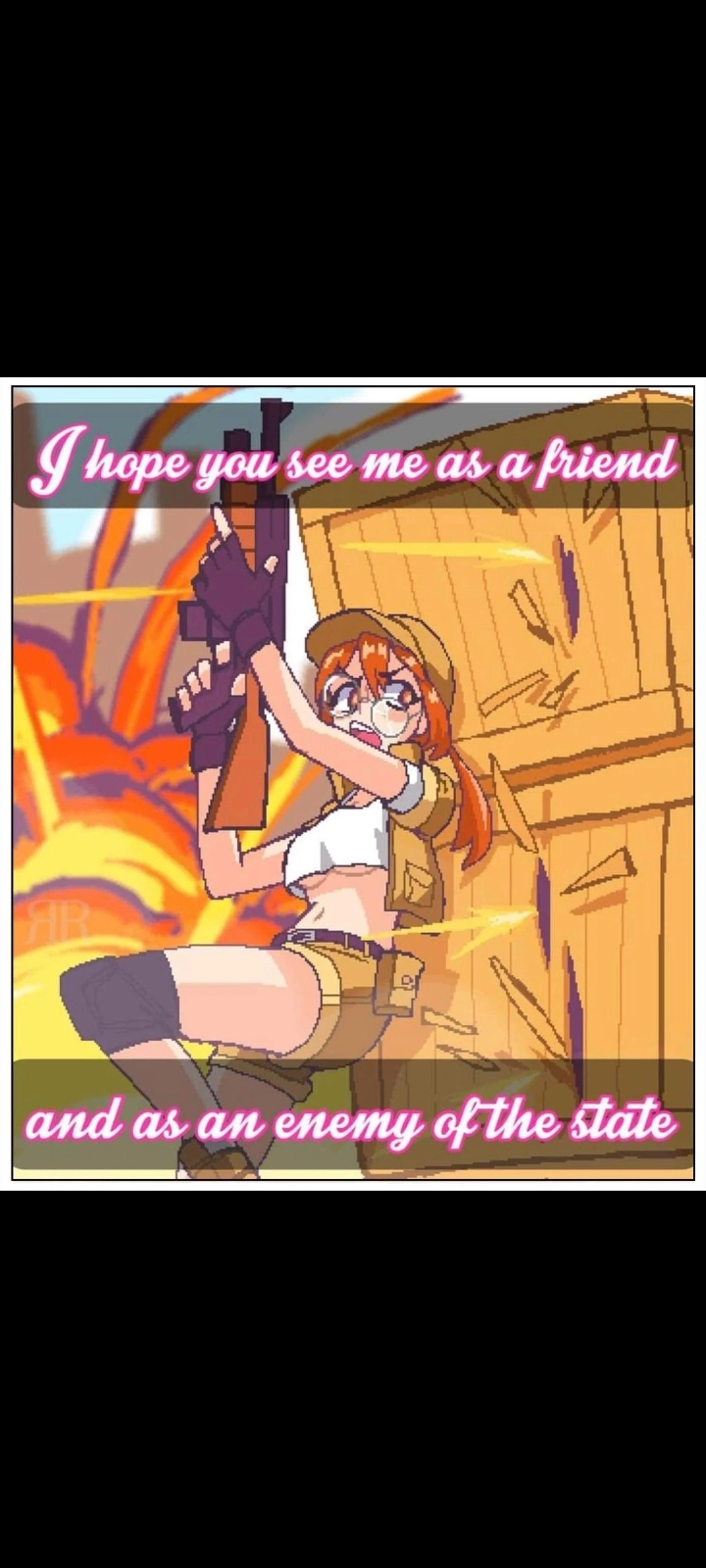No, I don't care that 'it's more book keeping'; when 5e has kineticists, then we can talk.
I don't love Pathfinder's "a class for everything" design, but I think I like 5e's "barely any choices to make" less.
I recently came to understand that 5e's shallowness is a strength. It's hard to make a bad character in 5e. But it's also hard to make a mechanically strong one. There just aren't enough choices to make. But that's really good for a lot of players who aren't going to develop any system mastery, and many of them frankly don't want to. They just want to sit down and play, and don't want to worry about "I need 13 Dex so I can take combat reflexes so I can take improved feint at 5th level" or whatever.
I dunno. When I was reading through PF2e, at a certain point it clicked for me that a lot of the rules actually make it easier to play a character by ear.
Take feats. There are tons, of different kinds, with different levels, sometimes with prerequisites. It seems like a lot of rules overhead, but that also means that you're not picking from the whole list every time you get one. If a player doesn't want to make a ton of choices, they can just pick one of the highest level feats they qualify for and have a pretty decent build. Maybe not optimized, but if they don't want to dig into the nitty gritty, that wasn't a priority anyway.
Plus, if a player wants to change their mind, the rules explicitly say you can swap things around. I know that works in 5e anyway by DM fiat, but still, it's nice to have a "don't worry too much" clause written in the books.
Ultimately a matter of personal preference, of course. I just think PF2e actually scales pretty well with player investment in the system, whether someone's really into character builds or just wants to follow some steps and get into the action.
Pf2e is very well made in that optimisation generally adds up to a few points of damage difference in a white room, while good tactics on the battlefield can make for literally hundreds of points of damage difference. It really frees you up to take feats because you think they'll be interesting or add to your character, instead of being pigeonholed by optimal choices.
I just wish pf2e wasn't so scared of certain things, I miss my melee monster alchemists
See, I'm one of those who had a folder chock full of character concepts I'd built and kitted out without knowing if I'd ever run them; so the folder was a 'so long as I stick with the same GM for a long while, literally any of thees concepts can be wheeled out and minimally retooled to fit whatever we're doing'. I don't feel half the same urge to do that for 5e because of what you call the 'barely any choices to make' issue.
5e's bounded accuracy is why you "can't" make a mechanically strong character, not the lack of choices. The rolls matter that much more than your bonuses that a character who is mechanically strong on paper can be outdone by a mechanically weak character that rolls slightly better.
Try PF2 and you'll see how mandatory balance and simplicity of play can be combined with lots of choices.More choices could allow you to make a mechanically strong character even with bounded accuracy. You could, off the top of my head, do more with the advantage system. It's real close to being a dice pool system, so you could just give that a nudge. You could give players choices that result in "roll X times and take the best result" to make them more effective without breaking the bounds. Elven Accuracy already sets precedent for this.
You could also do more with action economy. Have choices that result in extra reactions. Have choices that give players legendary actions.
You could tinker with damage, because that's not constrained by bounded accuracy. Give more options to change damage types, to exploit weaknesses, or just "reroll and take better"
Just off the top of my head. There's a lot of ways to increase character power and competence without giving bigger bonuses to the d20 check.
However, I think they want to keep the game very simple because a lot of players aren't, well, very good at rules.
More choices could allow you to make a mechanically strong character even with bounded accuracy.
Well, no, not really. The whole point of bounded accuracy is that it limits the bonuses you add to dice (all dice, so yes damage is constrained by it) so the rolls matter more, and choices that allow you to gain advantage, change damage types, exploit weaknesses, even reroll low damage are all included already. What you mean is that more powerful choices would allow you to make mechanically stronger characters, which is just a tautology - the reason for the limitations on the choices is bounded accuracy, so new choices that were added would still be limited by it.
That's not what bounded accuracy is. Bounded accuracy is only the rule (guideline, really) that you'll never add more than a fixed value (+20, I think) to a d20 roll. It is not about damage, HP, or how many d20s you roll.
HP and damage are free to scale, but the d20 modifiers are not.
https://www.dandwiki.com/wiki/Understanding_Bounded_Accuracy_(5e_Guideline) is a good summary. The developer's own words section is also detailed.
Ok, yeah, I guess its not the point, but as your article notes among all the things it isn't intended to do, it has the same effect. It's still what limits the effects of choices, rather than the number of them.
It limits some choices. It limits things that give you a bonus to your d20 roll. There's nothing about it that prevents other vertical growth or any horizontal growth.
You could give players a special feat every level, for example, chosen from stuff that's like "Roll deception vs their passive wisdom. If you succeed, their dexterity becomes the lower of 8 and the current value, and they are vulnerable to sneak attack."
Nothing about bounded accuracy prevents that. The fact that you don't get to pick stuff like that very often is the limiting factor on making powerful, differentiated, characters.
It's hard to make a bad character in 5e. But it's also hard to make a mechanically strong one.
i don't fully understand this argument. each character has 1 main stat + god stat of dex. if you don't max = bad. if you do max = strong. it's that simple tbh.
5e is legit a great casual system to just sit down and go. i do not mean this in a bad way - it's a great introductory system for casuals or rp'ers who don't wanna be a stat nerd
The differences between a weak and strong character in 5e are pretty small.
The core resolution is 1d20+stuff. The random factor is the biggest factor. A fighter who has 14 strength will roll 1d20+2. An "optimized" fighter at 16 will roll 1d20+3. That is a tiny difference. The die roll is a bigger factor than your stats and other choices you made. Even at higher levels, the guy who went 14 str 14 int and took the 'actor' feat on their fighter for fun instead of a strength ASI isn't really that far behind. They'll still hit a good amount of the time, especially because the target numbers are constrained pretty tightly via Bounded Accuracy. A casual player probably won't even realize their character would have hit on that 12 if it had been built "better".
So if you don't max out your main stat you'll possibly have a "bad" character as far as 5e optimization goes, but that doesn't go very far. The actual difference is tiny.
Conversely, there's not really a lot of ways to make a character more effective. 3e had Feats as the main way to differentiate your character, but those are sparse in 5e. Like if you want to make a rogue that's better at sneak attacks, there's not really a mechanism there beyond "level up". In 3e, for example, there were more feats and also prestige classes. You could prestige into Assassin for death attacks, or Shadowdancer for hide-in-plain-sight, or whatever. 5e has multiclassing, but that's often a huge opportunity cost compared to prestige classes.
Many characters on leveling up in 5e don't receive many choices. Some levels have zero choices. Rogue, for example, has no choices to make at all for 2nd, 5th, and 7th level. 6th lets you pick where to put expertise, which is a pretty small choice.
5e is legit a great casual system to just sit down and go. i do not mean this in a bad way - it’s a great introductory system for casuals or rp’ers who don’t wanna be a stat nerd
Strong disagree that it's actually a great introductory system. It is overflowing with idiosyncratic stuff (such as a 14 being a +2 bonus). It is geared largely towards "resource management combat game", and the further you move from that concept the more it breaks down.
Fate or a PbtA game are probably much better introductions for people who want to play a casual roleplaying game together. Fate IMO is actually closer to how someone who hasn't played RPGs would intuit them working.
However, the simplicity of the system is a strength of it. If it had more choices and depth, some players would bounce off. I don't know if it's possible to make a system that has both depth and appeals to "Bobby doesn't read or remember rules" archetypes.
Imagine not being a condescending, non-contributing tool in an until now, constructive thread. I'm sorry if it offends you that after 15 years tabletopping, I find basic sword-and-boards and basic wizards a little bit mechanically trite; but you didn't need to come up in here acting like a redditor.
Good grief, it was just a joke, dude. In the same spirit of the post, I may add. Take your righteous anger elsewhere.
"Buhhhh it was just a joke" nice Schrodinger's Douchebag manuever. If I didn't think you were a redditor before, I would now.
Now that I think about, I don't think I've ever played a classless TTRPG. My big 3 for the past 15 years have been Pathfinder, Vampire: the Masquerade, and Shadowrun(til I lost my hero lab code at least); so I'm very used to narrowing down within a slate of options for a given archetype. A lot of it is I don't think I've ever known a classless DM, my list of DMs for the past 15 is actually shockingly light. I like keeping the same table folks where I can.
Try Divinity Original Sin 2 (video game from BG3 creators). I wished there was a TTRPG like that
I don't know if it scratches the same itch for you, but Archetypes do for me.
They don't for me, tbh. Part of what was fun about prestige classes for me was that there was multiple ways to get to them. It was something a character, theoretically any character in most cases, could work towards regardless of where they started. Like a Bladesinger may have started as a fighter, a bard, a wizard, or more. It felt like a whole world of character possibilities. Archetypes feel more like a doctor picking their specialty of study, at least to me
See, i'm fine with less class options but I just can't go back to the stand-still & swing-til-one-side-falls-over meta of PF1e and 5e. If I could install the style meter from DMC into my TTRPGs, I would.
If you're serious: The Wushu system gives you one die per description element, so you literally get better the more dynamically you describe the scene!
rp for mechanical benefit was always a huge hit at my 3.5 games, i 100% recommend it
really gets people into the scene imo
See, I think I have a lot of that in my games, but it's an undocumented duty of the DM. D&D can be very stand-and-deliver if you're doing theatre of the mind combat without much scene-setting, but it also becomes very tactical and/or swashbuckling if you describe the area in detail. Or, even better, use visual aids like a battle map. It really all comes down to: the players can't swing from the chandelier if they don't know there's a chandelier.
It finally clicked for me why I love 5e's combat so much (as the only TTRPG I've played - still a newbie!), while other people always criticize it. It's because my DM is awesome and keeps including visual aids, descriptions, and ways to make the combat dynamic such as using the environment either against the players or against the enemies!
The best DMs are a treasure; they can make anything fun.
I think "good" systems (from a DM's perspective anyway) are the ones that make that job take a the minimum amount of effort; If I need a monster, I can make a statblock, but if the system includes a monster manual that has it for me, I can spend that prep time on some other encounter. Likewise, having just enough lore, such that I can grab elements and inspiration, but not so much that I have to exhaustively research it, is a huge benefit.
From a player's perspective, I guess my priorities would be a system that isn't actively frustrating to use, and one that I can have a pretty good understanding of the likelihood of whether any particular choice will succeed or fail. Doesn't have to be perfect knowledge, just so long as I have the chance to make a meaningful decision between my options.
If I'm honest, the literal only reason I still prefer Pathfinder over 5e is because a bunch of my go-to favorite classes don't exist and can't reliably be translated to 5e without a lot of kludging or just outright sawing pieces off and sanding the stumps down. 5e does play rather streamlined, and with a good DM, it goes from good to fantastic; but it's still a matter of 'where are my oracles, kineticists, soulknives, gunslingers, and swashbucklers?'
I just don't like playing base, core, or big four.
I appreciate that kind of stuff when its there. I also really like codified abilities and techniques I can pull off independent of the GM's current narration. I've got a little hedgehog dude in pf2e I'm playing with explicit benefits from doing cool and varied moves in battle. With strong reasons to swap between weapons, taunt, feint, spindash around and generally style on enemies, I find i've always really nice tools to keep combat engaging and to ratchet up the drama and tension from the player's side.
My group is doing a gestalt pathfinder campaign with mythic tiers. As if there weren't enough options with the base ruleset.
Gestalt Mythic sounds outright fantastic; I hope your table lives long enough to explore the concepts your players brought to it.
My group's been together since highschool and we're in our mid 20's now. Chances of our group falling apart are slim to none luckily.
Has anyone played Middle Earth Roleplay before? Ancient RPG from the 90s (I think). The insane level of complexity in that game was what made it sooo fun.
It is oooold. Uses a d100 system. fooking glorious.
https://en.wikipedia.org/wiki/Middle-earth_Role_Playing
I'm immediately interested because all games that use d100 system are instantly superior to d20 games
you may enjoy eclipse phase. lefty (anarchist-flavored iirc) transhumanist sci-fi with a 2d10 percentile die system (not d100 but i thought it was when i started writing this and it's too late to go back now)
...i keep hoping that someday we'll see a FASERIP revival, but i recognise that's a fool's dream...
I'm just happy when I can meet semi regularly with a group for a campaign.
5e does have the mystic from UA but i think it got trashed for being too versatile/unfocused. it can have avatar-style bending abilities depending on which disciplines you pick but ultimately it's psion-lite more than anything
pf also has the advantage of being pretty inclusive (which, say what you will about corporate inclusiveness but given how the bigger ttrpgs tended to be until relatively recently it's still fairly refreshing)
D&D 3.5 also had a couple classes, TBH my favorite edition to make literally any kind of build.
Show









